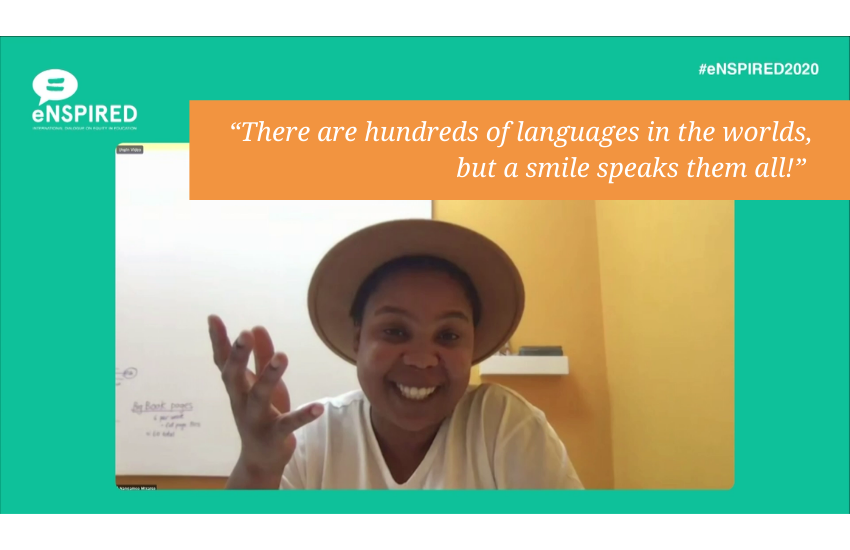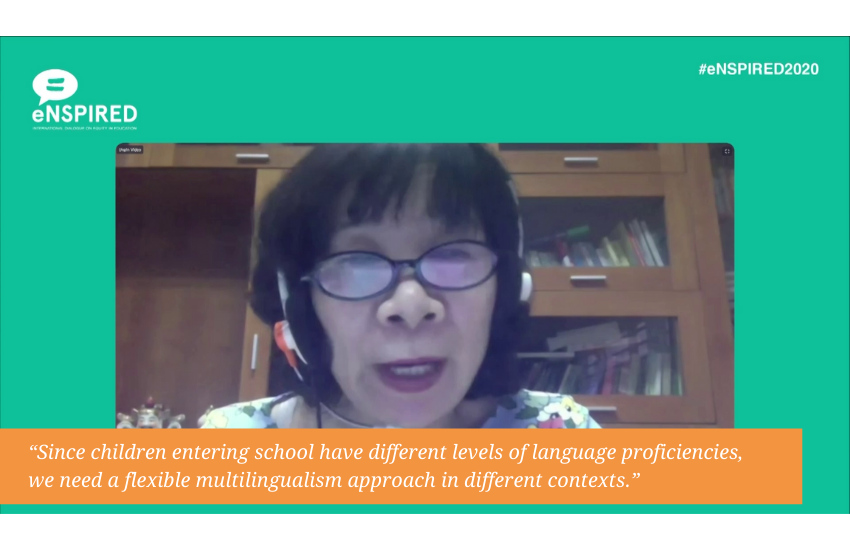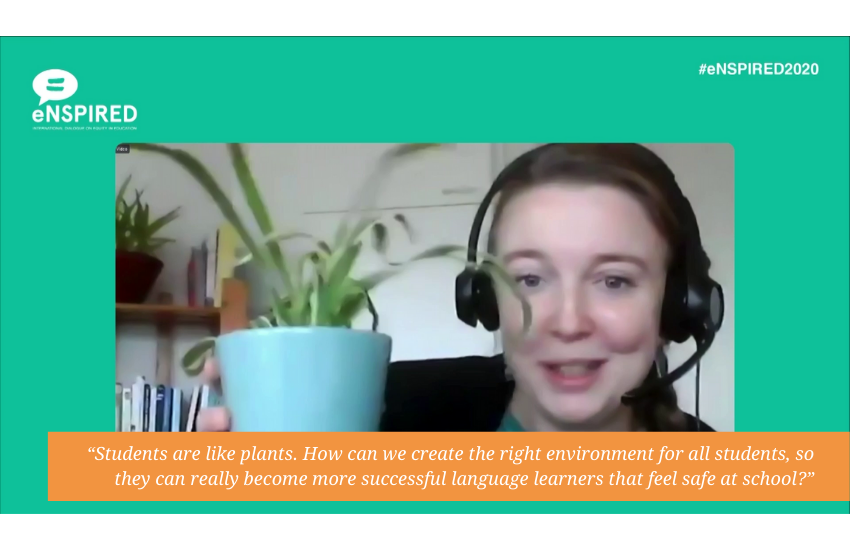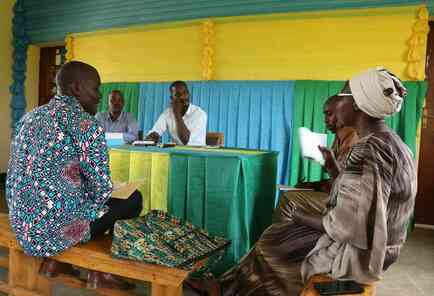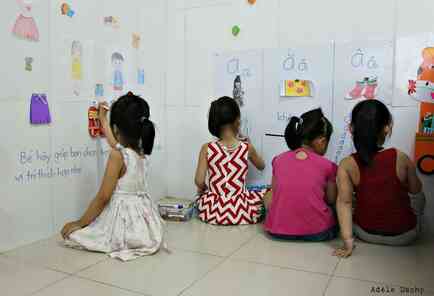Couldn't you be there or did you miss something? (Re)watch the recordings here!
Hanan Challouki was the host and opened the first live stream session. We started with talks about multilingualism and education in Vietnam, South Africa and Belgium. Three countries, three different contexts, but many common challenges. Anh Phuong Ha, Global Teacher Prize top 10 finalist 2020, stressed in her keynote the importance of the role of teachers. She is an English teacher at Huong Can High School, Phu Tho province, Vietnam, a school where 90% of young people belong to an ethnic minority group.
Happy and honored to be keynote speaker on the topic “ Multilingualism in Education” @eNSPIRED_org hosted by @VVOBvzw pic.twitter.com/LMCK5TADfh
— phuongchick (@phuongchick999) November 17, 2020
During the following days, participants had the opportunity to deepen their knowledge and get inspired during various thematic sessions in which we gave the floor to even more speakers from Vietnam, South Africa and Belgium. They shared their expertise on material development, reading for meaning and professional development. After all, how do you learn a language without books and stories or without well-trained teachers?
Speakers, as well as participants, shared stories of how they deal with multilingualism in education. At the end of each session, participants were given a practical task to elaborate on during the thematic work sessions of the following week.
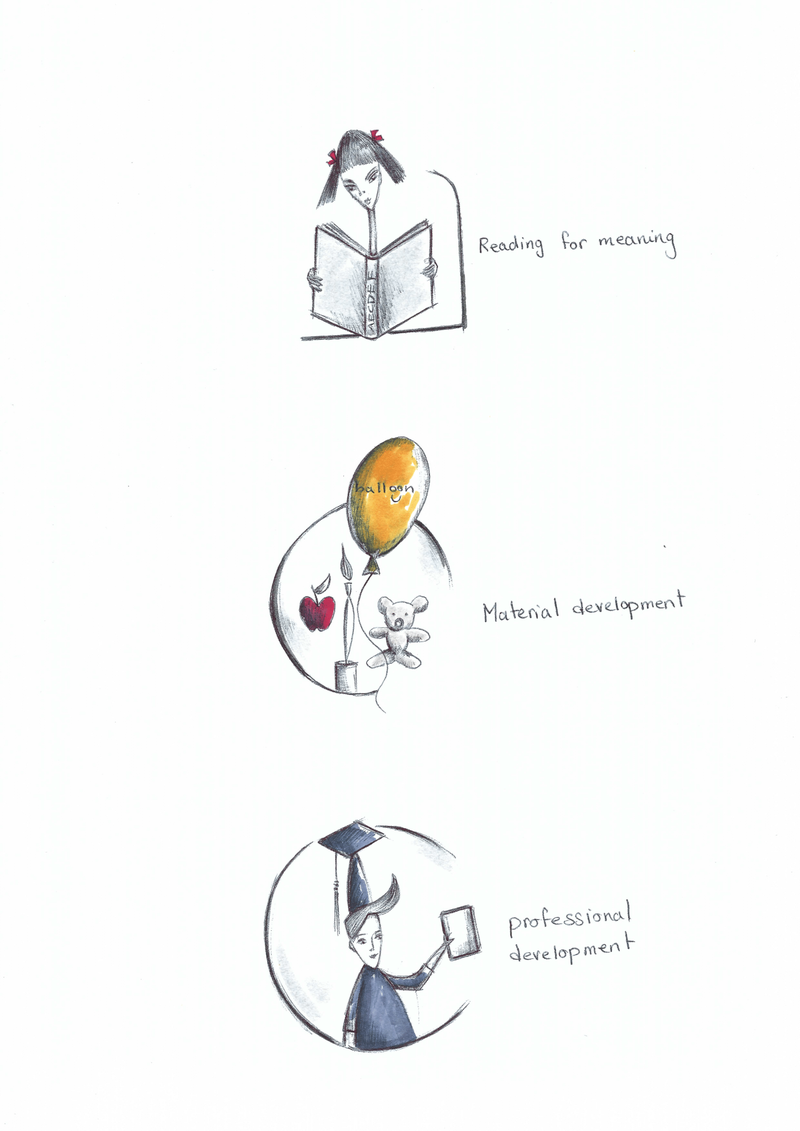

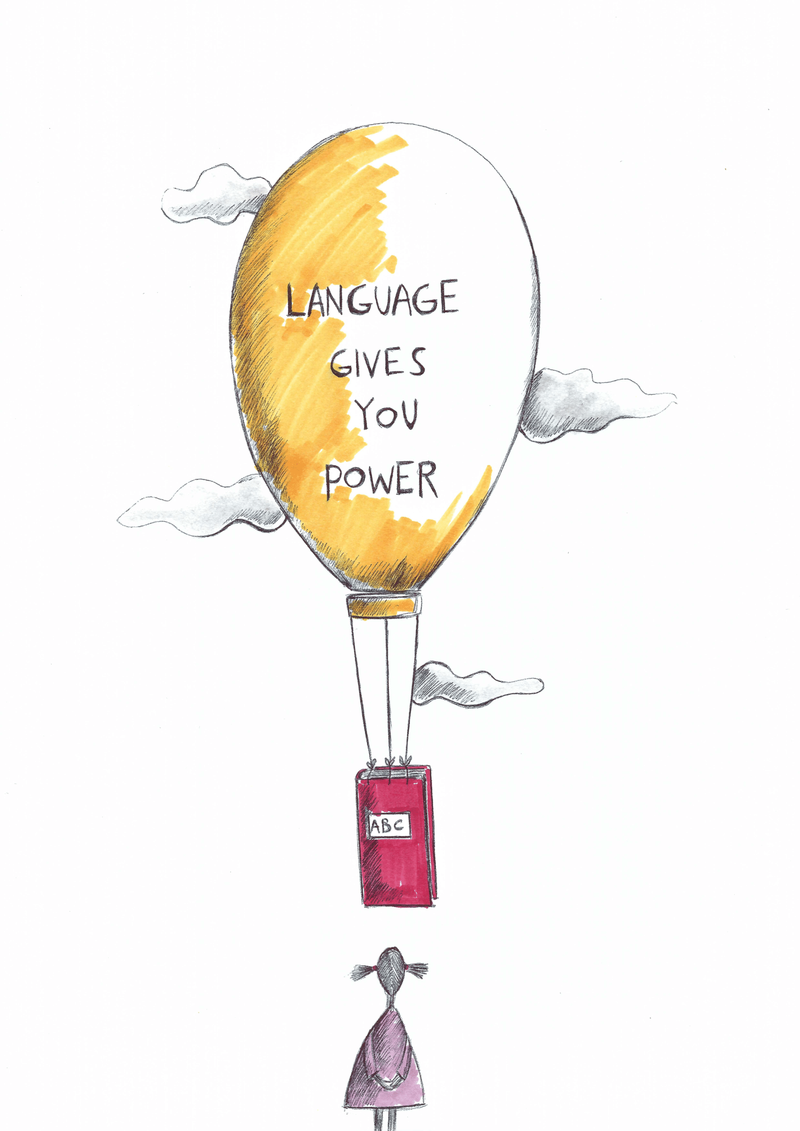
Cooperation
Each day was full of good practices and tips. What we remember is that multilingualism in education is a story of many people and that cooperation is key. We need everyone: political leaders, school leaders, teacher trainers, educational advisors, parents, the whole community... and, of course, teachers. They play a very significant role in creating a safe, meaningful and positive language learning environment.
The importance of the mother tongue
If a learner feels safe and is allowed to use their mother tongue in class, they will feel more confident and will be able to learn both their mother tongue and the language of instruction faster and better. It is not necessary for the teacher to understand the mother tongue, but by building bridges between the different languages, you acknowledge the mother tongue and the identity of the learner.
Language is power
Some languages are considered more powerful than others and there are, for example, many ethnic minority languages that are considered less valuable. This is something we should be aware of and pay attention to in the classroom. Because every language is equally valuable and enriching.
SDG4
We closed the learning week with a final session in which we looked back on what we had learned. Kira Boe of Oxfam Ibis concluded with a keynote in which she emphasised the importance of multilingualism in education for achieving the Sustainable Development Goal of Quality Education (SDG4).
A creative interpretation
The illustrations were made by Nilu Kuhpour. She gave her own interpretation of what she heard during the opening and closing session. You can have a look at all her creations at the bottom of this page.
Spoken word artist Sarah Bekambo closed both live streams with touching words about her experience with multilingualism and multiculturalism.
“I learnt plenty, but especially that we share these challenges and that we stand stronger together”, read one participant’s feedback.
“Multilingualism is a must”, read another, “and it’s important to learn from each other and adapt."
"What I have learned in particular is that we share the same challenges with people elsewhere in the world, who are also looking for the right answers."
